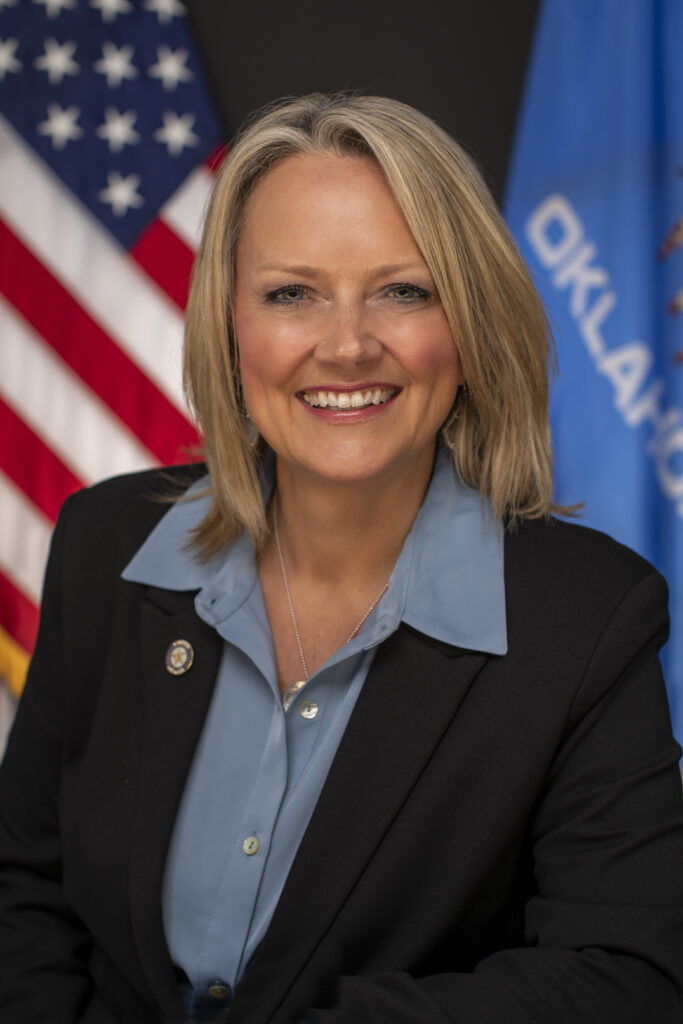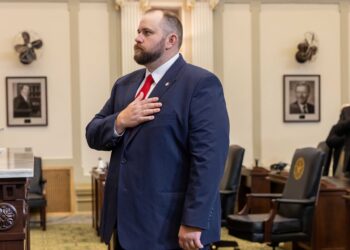OKLAHOMA CITY (OBV) – More Oklahoma adults will be able to complete their high school education and earn a diploma thanks to a bill expanding high school completion opportunities.

Senate Bill 745, written by Sen. Christi Gillespie, R-Broken Arrow, extends the age limit for high school completion in Oklahoma from 26 to 30 years. The bill recently cleared the Oklahoma Senate with a 40-2 vote.
The bill was sent to Gov. Kevin Stitt to be signed into law on May 15. Stitt did not sign the bill, but he did not veto it either. The sufficient amount of time elapsed for the bill to automatically go to the Oklahoma Secretary of State and become law.
Gillespie said the new law will enable Oklahomans who are well into their adulthood to complete their high school education.
“By extending the age limit, we are opening doors for individuals to achieve personal and professional growth,” she said.
The bill also requires individuals between ages 21-30 to complete their education through full-time virtual programs offered by their school districts. And it excludes those individuals from being counted in school A-F report cards and chronic absenteeism data.
Gillespie spoke with Oklahoma Business Voice about SB 745 and its benefits to both Oklahomans and the state’s workforce.
She said earning a high school diploma gives people a sense of pride that helps them pursue career or higher education goals with confidence.
“It makes people feel good going into the workforce, knowing they have that. And they can continue on more seamlessly if they want to go on and go to CareerTech or get their associate’s or even college degree. It just makes everything a little more seamless,” she said.
Students who pursue their high school diploma are able to pick up where they left off when they dropped out of high school, with their past credits counting toward their diploma.
The bill’s requirement that adult students take their classes virtually is the first time the requirement has been put into state statute.
“Previously, the assumption was that these adult learners would be virtual, but it didn’t say that in statute,” Gillespie said. “I felt strongly that most parents out there don’t want a 26 year old actually participating in a high school class with their 16 year old.”
Schools across Oklahoma already have virtual education assets in place to accommodate adult students. Virtual education was heavily relied upon during the COVID-19 pandemic.
Virtual learning gives adult students more flexibility for getting their school work done as they keep up with job and family obligations, according to Gillespie.
“I believe that learning is a lifetime proposition. We never stop learning. And so, the flexibility of being able to do this virtually and get your diploma while you’re working, while you’re taking care of children, if you already have children—we want to make it as flexible as possible so that we are encouraging this to happen,” she said.
Gillespie said it is important to not include adult students in school A-F report cards.
“That was important because we want to make sure that the data we’re getting from our high schools is the data for our K-12. And if it’s adult learners, that could possibly skew the data. We want to make sure that we have really good data for our high school population that isn’t over 21,” she said.
The senator said she created the bill because she suspected that adult Oklahomans who hoped to obtain a diploma were aging out of the opportunity to do so.
Many Oklahomans were not able to earn a diploma as a teenager because of difficult circumstances that caused them to leave school.
“I think there are people out there that are really good students that, under [certain] circumstances, they just are unable to stay in high school. Maybe it’s a teenage pregnancy, or maybe they don’t have a support system at home, or maybe they were homeless or kind of couch-hopping, or they had to go to work and couldn’t finish high school,” Gillespie said. “Whatever the reason is, everyone deserves that second chance to go back and get their actual diploma. And I do believe there’s a pride in that, when you get that diploma.”
Oklahoma Department of Education data shows that 8,566 (4.2 percent) dropped out of school in 2022-2023.
Gillespie said she started hearing from Oklahomans looking for that second chance after she filed SB 745.
“Someone actually messaged me and told me that they really hope that the bill passes because of that very reason, that they were aging out, and this would enable them to finish,” Gillespie said.
The woman who contacted Gillespie was excelling in her second go at a high school diploma, even earing a place in the Oklahoma Indian Student Honor Society. However, time was running out.
“She’s single mom and she works full time and she had never graduated high school. She had started her credits and had gotten a lot done, but there was no way she was going to finish by the time she aged out,” Gillespie said.
Gillespie said she looked forward to being able to message the woman back to tell her that the bill had become law and that she would be able to fulfill her dream.
“I can message her back and give her good news that she can get her high school diploma, because she wanted that instead of getting a GED,” Gillespie said. “She actually wanted a diploma.”
Gillespie said her goal is a state law that allows adults of any age to pursue a diploma.
“If somebody wants to go back and get their high school diploma when they’re 80 years old, I would love for that to be able to happen in the future,” she said.

















